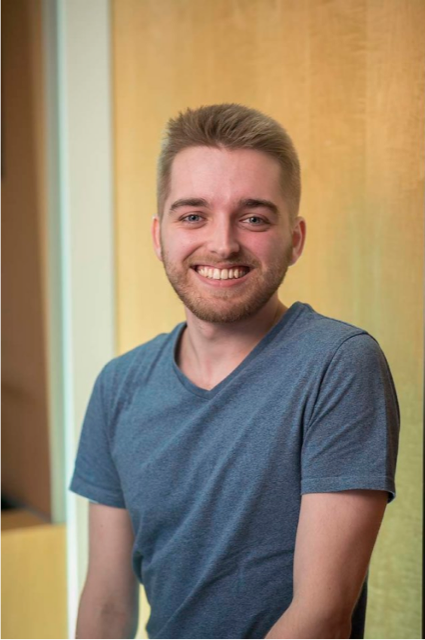Ryan Turner
 Cosmology is the study of the nature of the Universe, and one of the most fundamental tasks facing astronomers today is to determine the cosmological model that describes the physics of an expanding Universe. The standard cosmological model - called such due to its simplicity and common use - assumes that the Universe is homogeneous and that it is isotropic. The large-scale structure of the Universe, comprised of galactic sheets, filaments, voids and galaxy superclusters, violates these assumptions. The model also predicts that 69% of the mass-energy density of the Universe is in the form of ‘dark energy’, the effects of which seem to grow with time and the existence of which we still do not understand. The inhomogeneity, or ‘clumpiness’, of the Universe also grows with time, so it may be possible that there is a connection between the two phenomena. Through the action of a 'fifth force’ dark energy may represent a modification to gravity on cosmological scales, this force would have to be screened in high-density environments in order to satisfy existing tests of general relativity. Therefore, a powerful test of different dark energy scenarios is to test to the environmental dependence of cosmological observables. This is the motivation behind my Ph.D. project.
Working with Prof. Chris Blake and Dr. Rossana Ruggeri, I will be investigating how the local environment of large-scale structure may influence spacetime geometry and gravitational physics using two cosmological probes: galaxy peculiar velocities and the baryon acoustic peak. Peculiar velocities are imparted to galaxies by the gravitational effects of cosmic large-scale structure, thus they contain information about gravitational physics. By measuring these velocities as a function of environment we may search for the influence of a ‘fifth force’. The baryon acoustic peak is a ‘standard ruler’, whose apparent size may be a tracer of the effects of varying spacetime curvature and inhomogeneity. If this is the case, any cosmological results predicated on a ‘fixed’ value for the baryon acoustic peak will need to be re-examined.
Cosmology is the study of the nature of the Universe, and one of the most fundamental tasks facing astronomers today is to determine the cosmological model that describes the physics of an expanding Universe. The standard cosmological model - called such due to its simplicity and common use - assumes that the Universe is homogeneous and that it is isotropic. The large-scale structure of the Universe, comprised of galactic sheets, filaments, voids and galaxy superclusters, violates these assumptions. The model also predicts that 69% of the mass-energy density of the Universe is in the form of ‘dark energy’, the effects of which seem to grow with time and the existence of which we still do not understand. The inhomogeneity, or ‘clumpiness’, of the Universe also grows with time, so it may be possible that there is a connection between the two phenomena. Through the action of a 'fifth force’ dark energy may represent a modification to gravity on cosmological scales, this force would have to be screened in high-density environments in order to satisfy existing tests of general relativity. Therefore, a powerful test of different dark energy scenarios is to test to the environmental dependence of cosmological observables. This is the motivation behind my Ph.D. project.
Working with Prof. Chris Blake and Dr. Rossana Ruggeri, I will be investigating how the local environment of large-scale structure may influence spacetime geometry and gravitational physics using two cosmological probes: galaxy peculiar velocities and the baryon acoustic peak. Peculiar velocities are imparted to galaxies by the gravitational effects of cosmic large-scale structure, thus they contain information about gravitational physics. By measuring these velocities as a function of environment we may search for the influence of a ‘fifth force’. The baryon acoustic peak is a ‘standard ruler’, whose apparent size may be a tracer of the effects of varying spacetime curvature and inhomogeneity. If this is the case, any cosmological results predicated on a ‘fixed’ value for the baryon acoustic peak will need to be re-examined.
| Phone | +61 3 9214 5622 | |
| Office |

